Toko telo
Past events
PASt events
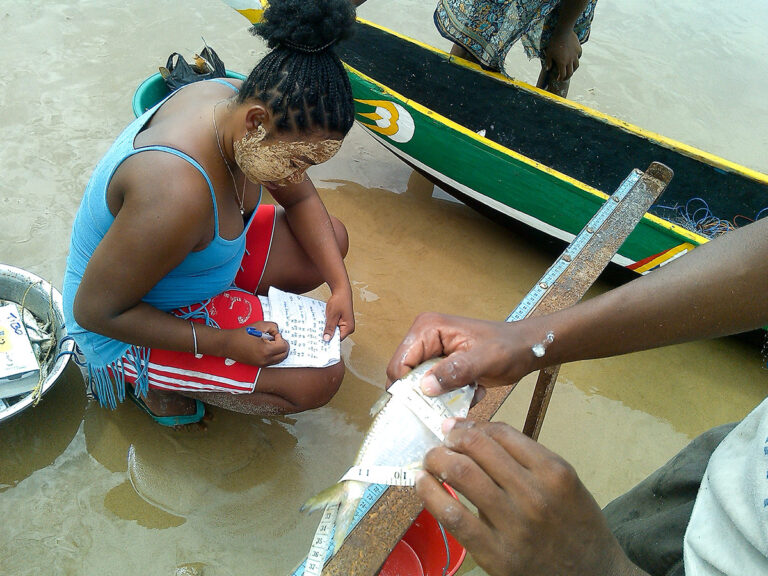
What can we learn from field experiences of community owned fisheries data and technology?
Tuesday 17th January 2023
- Indah Rufiati – Yayasan Pesisir Lestari
- Nico Waldeck – ABALOBI
- Fanny Wright – Blue Ventures
The event was chaired by Serge Raemaekers, Director/Co-founder, ABALOBI and Abigail Leadbeater, Monitoring and Evaluation Manager, Blue Ventures.
This event will consist of two parts:
- A virtual tour of community based monitoring projects in South Africa, Comoros, Indonesia and Madagascar, with insights into the use of information and communication technologies for community-based catch monitoring
- Panel discussion with live questions to the panel and discussion session with the audience around the use of data collection and ICTs in small-scale fishing communities globally
This webinar is co-hosted by Blue Ventures and ABALOBI as part of IYAFA 2022.
- Provide fishers, monitors and community members with the opportunity to reflect on and discuss their user experience, sharing learnings, insights, benefits and challenges within their group and with others using similar data collection approaches
- Create an opportunity for stakeholders and ICT practitioners more broadly to share lessons and experiences to improve upon how they utilise ICTs
- Create active discussions on the ICT4Fisheries network on the SSF hub
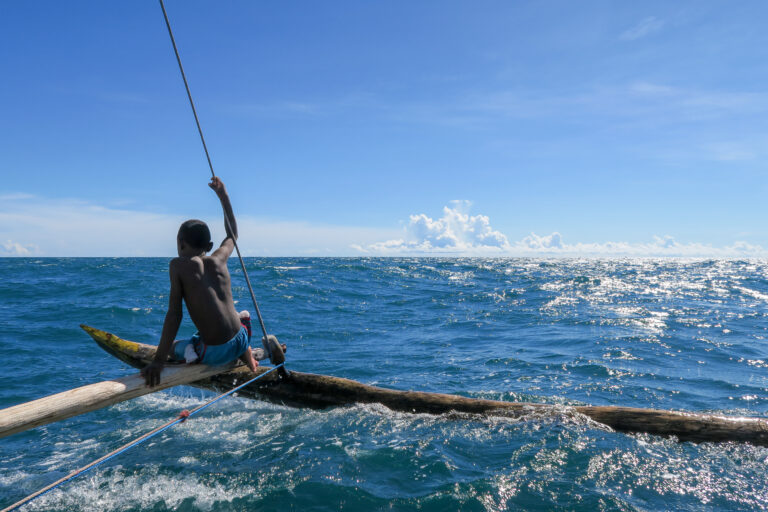
Centring the rights of small-scale fishers within Fishery Improvement Projects
Thursday 1st September 2022
- Stuart Du Plessis – Abalobi
- Ali Thani – Mwambao
- Ronalee McKenzie – Blue Ventures
The panel discussion will be chaired by Christopher Giordano, Technical Advisor – Fisheries Value Chains and Markets, Blue Ventures.
This event will consist of two parts: a forty-five minute panel discussion with live questions to the panel in English, followed by a forty-five minute break out discussion in English, Spanish and French (indicate preferred language when registering for the event).
As part of the International Year of Artisanal Fisheries and Aquaculture, this event will highlight the experience of small-scale fishers who have engaged in Fishery Improvement Projects (FIPs) and the economic or environmental outcomes they experienced as well as current trends within FIPs and global certification and ratings schemes to include social responsibility.
Focusing on practitioner experiences, the panellists will discuss how their FIPs or value chain work has affected food and nutrition security, financial access of fishers and fish workers, and value chain actor participation in fisheries governance. These experiences will inform breakout sessions which review how social and human rights approaches used by FIPs might be different between small scale fisheries and industrialised, large-scale fisheries.
How can we strengthen health-environment partnerships to maximise impact for coastal communities?
Friday 25th February 2022
- Nantenaina Andriamalala – Madagascar PHE Network
- Ella Disaine – Marie Stopes Madagascar
- Elisa Orbananos – ThinkPlace
The panel discussion will be chaired by Vik Mohan, Director of Community Health, Blue Ventures.
This event will consist of two parts: a forty-five minute panel discussion with live questions to the panel in English, followed by a forty-five minute break out discussion in English and French (indicate preferred language when registering for the event).
To mark the International Year of Artisanal Fisheries and Aquaculture, this event will showcase how the recent UK Government funded ASPIRE project worked towards increasing the adaptive capacity of coastal communities and small-scale fishers to climate change. The event will bring together organisations that have collaborated on the ASPIRE project, which aimed to build community resilience to climate change by strengthening the integration of sexual and reproductive health services with community-based conservation activities. This will be a unique opportunity to hear insights from actors in both conservation and sexual reproductive health sectors, as well as from experts in human-centred design.
In this session we will discuss and explore:
- The principles and benefits of cross-sectoral, health-environment programming and how this can be applied in coastal communities.
- Innovations developed under the ASPIRE project to strengthen community resilience to climate change through improving sexual and reproductive health and rights, and
- The principles of effective collaboration between partners from different sectors, and how HCD has supported the process.
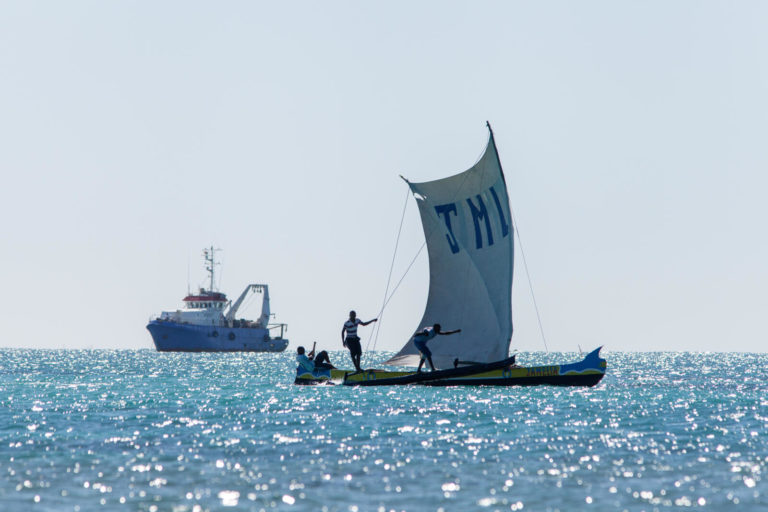
COP26 Special: Bottom trawling and a zero-carbon future: what needs to change?
Monday 8th November 2021
The Toko Telo COP26 special was co-hosted in partnership with the Transform Bottom Trawling Coaltion and Our Seas.
- Jenny Crockett from the Community of Arran Seabed Trust (COAST). See COAST’s campaign for Sustainable Inshore Fishing here.
- Bally Philip from the Scottish Creel Fisherman’s Federation (SCFF). See the SCFF’s proposal for the three-mile limit here.
- Gaoussou Gueye, President of the African Confederation of Artisanal fisheries Organisations (CAOPA). See COAPA’s declaration on bottom trawling on the African coast here.
- Brian O’Riordan of the Low Impact Fishers of Europe (LIFE). See LIFE’s mission statement here.
- Béatrice Gorez of the Coalition for Fair Fisheries Arrangements (CFFA) and David Stinson, a scallop diver working in Norway, joined us for the Q&A session.
This event was chaired by Sophie Benbow, Fauna & Flora International and the Transform Bottom Trawling coalition.
This event will consist of two parts: The first hour will feature a presentation of the latest evidence regarding bottom trawling and climate, an exclusive film screening from Belize on the impact of a trawling ban in coastal waters, a panel discussion with our experts and a live Q&A (in English and French).
This will be followed by a 30 minute break out discussion in English and French (indicate preferred language when registering for the event).
This event will be broadcast live from COP26 in Glasgow.
Small-scale fishers and environmental groups have long criticised bottom trawling for its negative impact on coastal fisheries and ecosystems. But emerging research suggests that bottom trawling’s impacts extend beyond seabed damage and overfishing and includes significant contributions to global greenhouse gas emissions. If current estimates are correct, then bottom trawling may be one of the most carbon-intensive methods of producing food. In this special COP26 panel discussion, a global panel of experts will explore bottom trawling’s place in a zero-carbon future.
The session aims to:
- Present current research on the contribution of bottom trawling to the climate crisis and its broader social and ecological impacts
- Explore the impacts of bottom trawling restrictions in West Africa and Belize and present opportunities for bottom trawling management in Europe
- Facilitate cross-sectoral learning by discussing approaches to bottom trawling management in diverse global geographies
- Discuss policies that exist or could be developed to mitigate the impact of bottom trawling on coastal fisheries, ecosystems and the climate
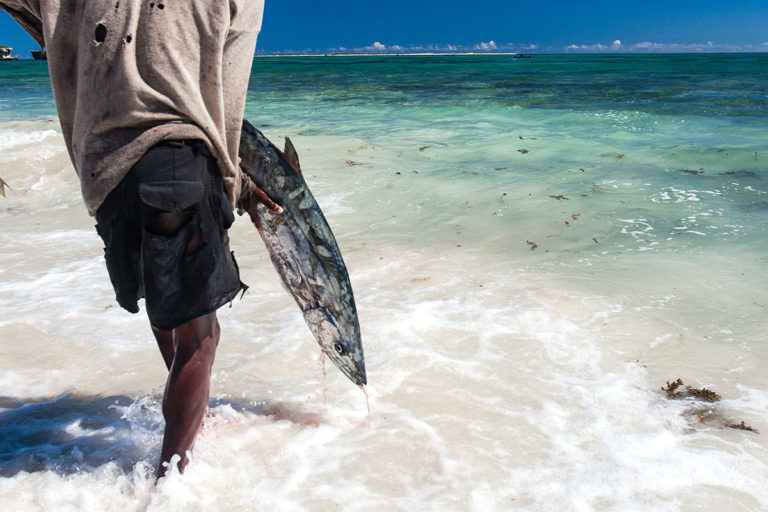
Fairer finance for small-scale fisheries: Supporting sustainable fisheries management through improved earnings
Thursday 7th October 2021
- Neel Inamdar – Wilderness Markets
- Laura Fernández Cascán – Future of Fish
- Esther Ngure – Blue Ventures
The panel discussion will be chaired by Christopher Giordano, Technical Advisor – Fisheries Value Chains & Markets, Blue Ventures.
This event will consist of two parts: a forty five minute panel discussion with live questions to the panel in English, followed by a forty-five minute break out discussion in English, Spanish, Bahasa Indonesia and French (indicate preferred language when registering for the event).
Access to finance and equitable distribution of benefits within seafood value chains has been one key challenge for community-led fisheries management. This second event in the Blue Ventures series of Toko Telo online conversations will explore potential successes and challenges of community-led fisheries management and conservation projects that seek to improve fisher earnings.
The session aims to:
- Explore financing fisheries management through
- Value-add processes
- Fishery Improvement Projects
- Microlending or other tools
- Facilitate cross-sectoral learning by discussing examples from fisheries and agriculture that could be relevant for practitioners
- Discuss tools that exist or could be developed to progress work in this area
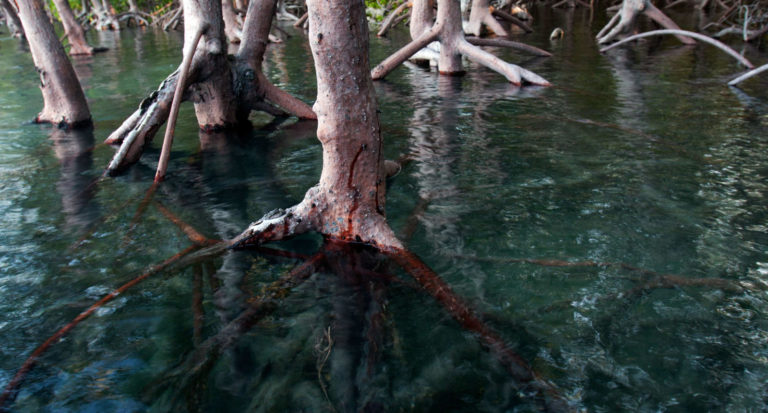
What does best practice in community-led mangrove management look like?
Wednesday 28th July 2021
- Zo Andriamahenina, Blue Ventures, Madagascar
- Rahma Kivugao, Mikoko Pamoja, Kenya
- Laura Michie, Mangrove Action Project, UK
The panel discussion will be chaired by Cicelin Rakotomahazo, Blue Forests Coordinator, Blue Ventures, Madagascar
This event will consist of two parts: a forty five minute facilitated conversation with live questions to the panel in English, followed by a forty-five minute break out discussion in English, Bahasa Indonesia and French (indicate preferred language when registering for the event).
Based on the case studies presented by the panel and the experiences of participants, the event aims to:
- Share learning and challenges from locally led mangrove management
- This companion event to the inaugural Toko telo conversation in 2020 focuses on learning about community-led mangrove management to improve practice and help to increase the uptake of this approach
- Begin drawing up a set of best practice principles for community-led mangrove management to benefit people and nature
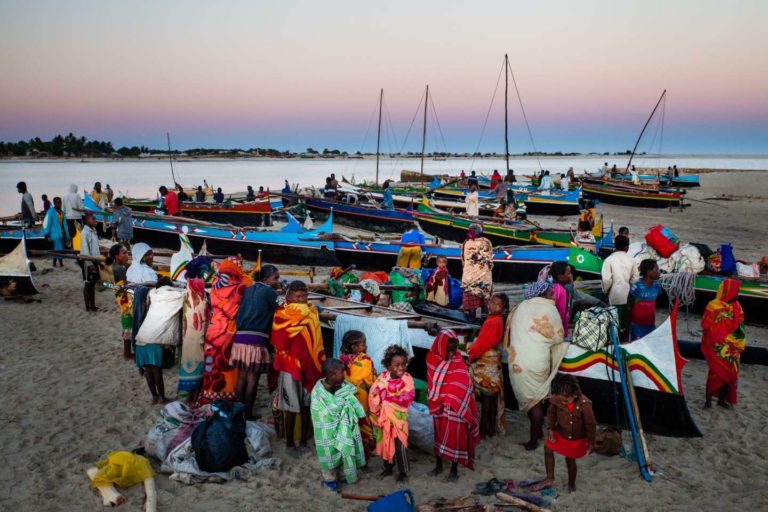
Does community-led fisheries management work?
Wednesday 26th May 2021
- Abrar Ahmad, Planet Indonesia, Indonesia
- Misbahou Mohamed, Dahari with Effy Vessaz, Blue Ventures, Comoros
- Naveen Namboothri, Ph.D, Dakshin Foundation, India
This event will consist of two parts: a sixty minute facilitated conversation with live questions to the panel in English, followed by a forty-five minute break out discussion in English, Bahasa Indonesia and French (indicate preferred language when registering for the event).
Based on the case studies presented by the panel and the experiences of participants, the event aims to:
- Explore the successes and challenges of community-led marine management
- Gain an understanding of the management measures that communities are implementing
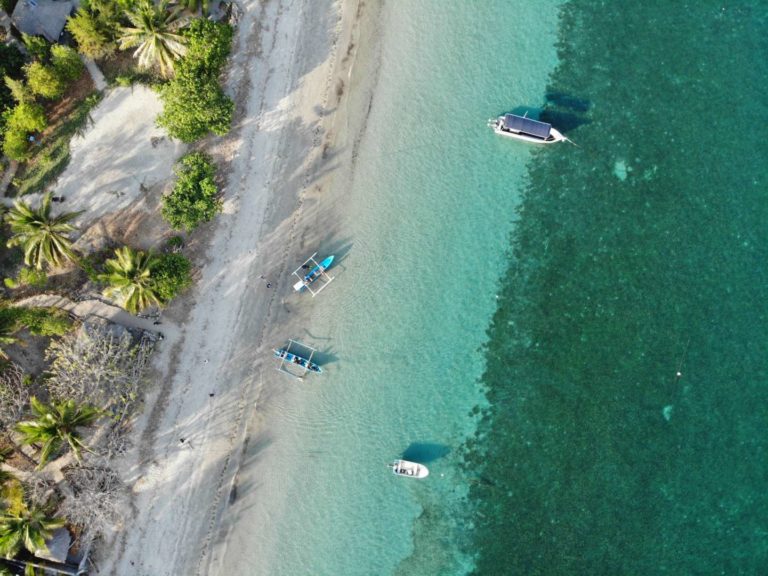
Community-based ecotourism as a catalyst for locally-led marine protection
19th November 2020 / 23rd February 2021
Part one
19th November 2020
How can community-based tourism catalyse locally-led marine protection? Session objectives:
- Profiling the role of community-based ecotourism in diversifying coastal livelihoods
- Addressing the real-time challenges of COVID-19 crisis and its impacts on tourism and the environment
- Identifying solutions to support community-based ecotourism and locally led marine conservation initiatives
- Laura Resti Kalsum, Stay Raja Ampat, Indonesia
- Francesca Trotman, Love the Oceans, Mozambique
- Adrian Wells, Seventythree
Part two
23rd February 2021
Exploring innovative financial mechanisms to support community-based marine tourism. Session objectives:
- Identify and discuss financing solutions that support community-based marine tourism and build socio-ecological resilience to global shocks such as COVID-19.
- Assessing the different types of finance mechanisms available that can help support community-based eco-tourism and how can communities access these.
- Jean DeVilliers, Owner and Co-founder of Chole Mjini Tree House Lodge and the Chole Trust Fund
- Olivia Bennett, Senior Associate, Finance Earth
- Mark Ellis-Jones, Co-founder of Greenfi
- Jacqueline Wharton, Head of Ecosystem Resilience, Climate and Resilience Hub, at Willis Towers Watson
- Claudia Ruiz, Reef Rescue Initiative, MAR Fund.
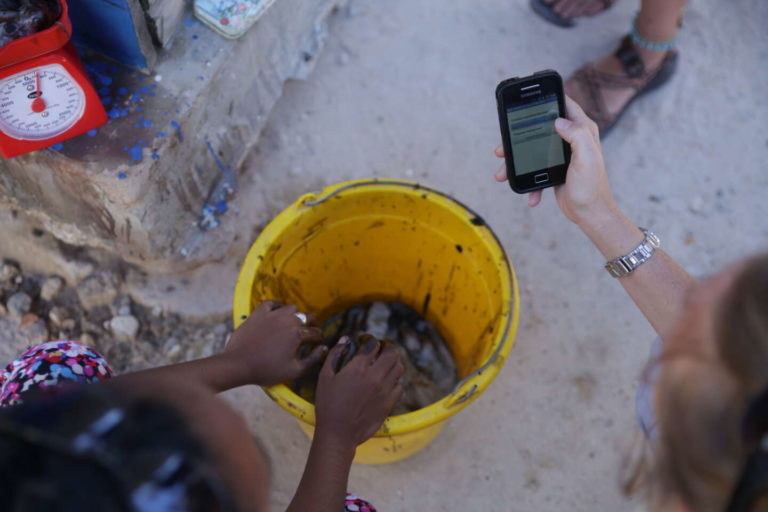
How can data empower communities in marine management?
Wednesday 27th January 2021
- Nusi Mursiati, FORKANI, Indonesia
- Marianne Teoh, Fauna and Flora International, Cambodia
- Lucy Kay, Community of Arran Seabed Trust, Scotland
Based on the case studies presented by the panel and the experiences of participants, the event aims to:
- Demonstrate the role of data in community-led management
- Explore examples that use innovative techniques for data use and communication
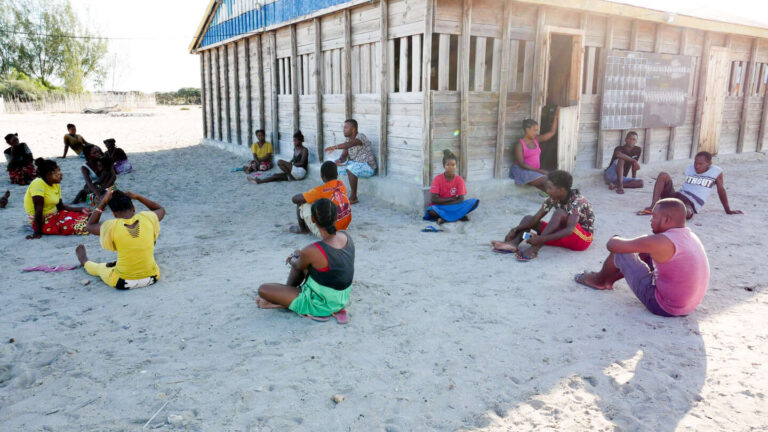
How can experiences from COVID-19 help networks and organisations support fishing communities?
Thursday 15th October 2020
- Prisca Ratsimbazafy, MIHARI Network, Madagascar
- Teri Tuxon, LMMA Network, Fiji
- Jane Muteti & Yvonne Muyia, COMRED, Kenya
Based on the case studies presented by the panel and the experiences of participants, the event aims to address the following questions:
- What factors make communities vulnerable to shocks and how can community-based networks and organisations support them to build resilience at a local level?
- What opportunities are there for organisations or networks to address the factors that build resilience at a national level?
- Given the complex nature of the shocks communities will face, how do we ensure we develop multi-sectoral responses that include health?
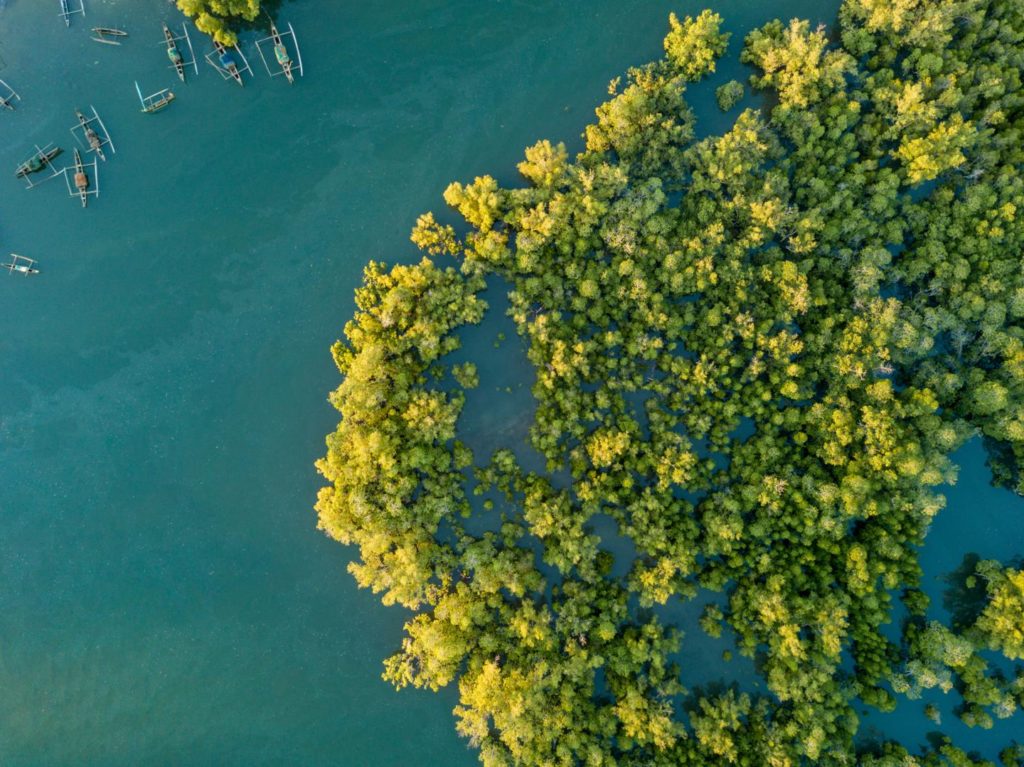
How can we fulfil the potential of community-led mangrove conservation for people and nature?
Wednesday July 29th 2020
- Novia Sagita | Yayasan Planet Indonesia (YPI)
- Lalao Aigrette | Blue Ventures Madagascar)
- Rio Ahmad | Yayasan Hutan Biru (YHB)
The event aimed to:
– Highlight the role of coastal communities in the conservation and restoration of mangroves
– Share learning and challenges from locally led mangrove conservation
– Discuss barriers and approaches to overcome them
Session outputs